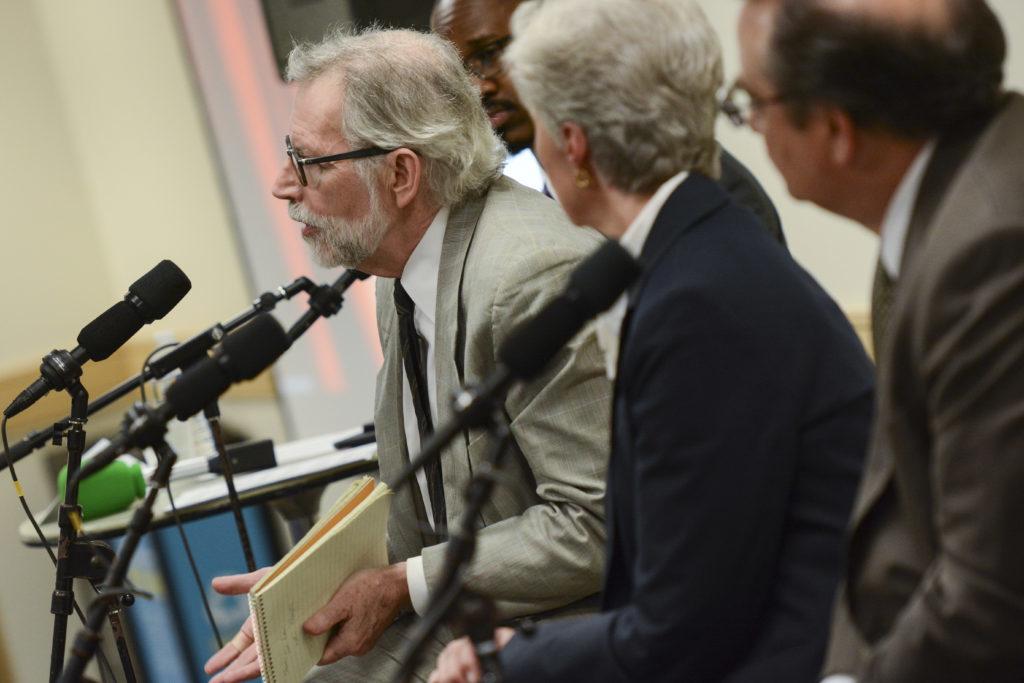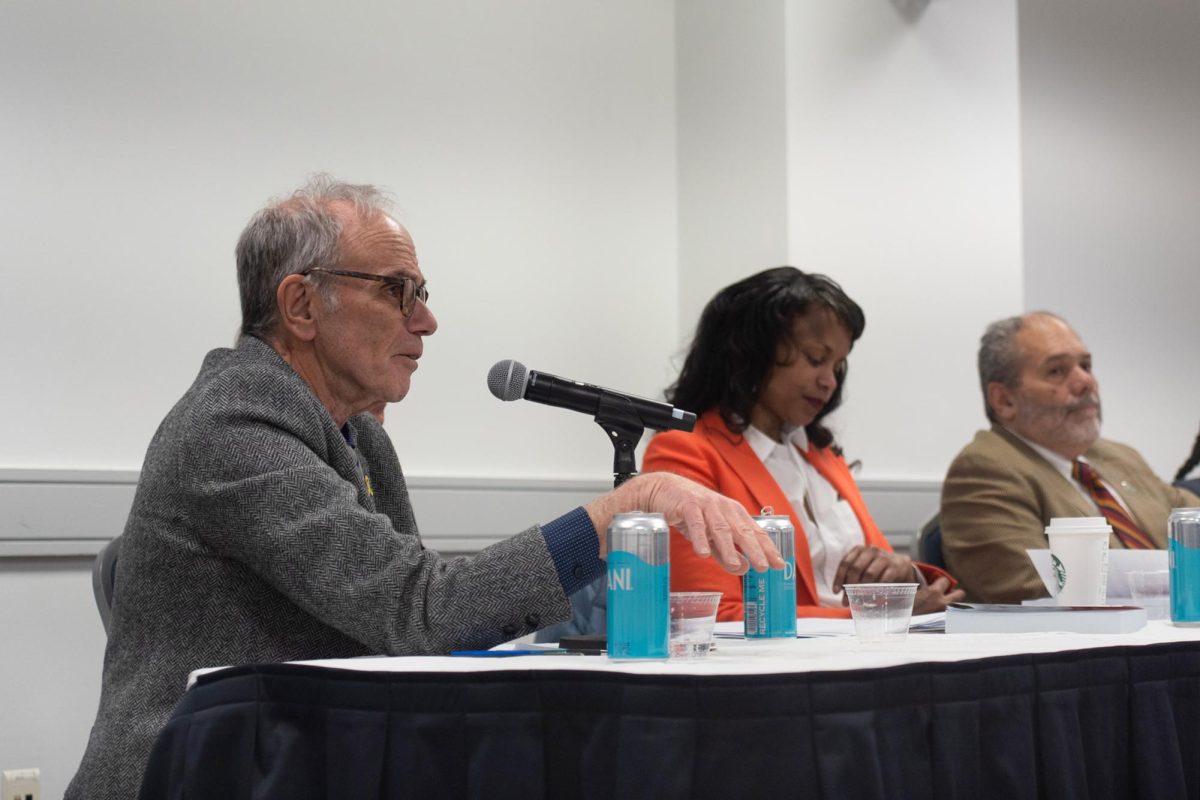Students and faculty gathered in the Marvin Center Thursday night to participate in a live radio broadcast about U.S.-Mexico relations.
Joshua Johnson, host of “1A” on WAMU, moderated the panel and focused the conversation on how the political climate is affecting the current administration’s relationship with Mexico and its citizens. The event was hosted by America Abroad Media and both audience members and listeners were able to submit questions to the panelists.
Here are some of the highlights:
1. Building tension instead of a wall
The beginning of the discussion focused on how talks of building a border wall have highlighted many of the tensions surrounding current immigration policies.
Peter Skerry, a political science professor at Boston College, said the border wall was representative of a feeling among the American people that more safety and security is needed.
“The wall serves as a metaphor for keeping America safe,” he said. “I think it is a legitimate topic to talk about border security, but however it resolves itself what we hope for is that it is something that we do in cooperation with the government of Mexico.”
Other members of the panel said that there are now many misconceptions surrounding immigration that need to be addressed, like how some don’t understand that many immigrants come from Central American countries like Guatemala, El Salvador and Honduras.
“What we’re seeing today is an upsurge in drug trafficking and violence in these countries,” Director of Vision Americas José Cárdenas said. “A lot of that is caused by American’s insatiable habit for illegal drugs, so we have a responsibility to help these countries deal with the fallout that stems from the drug trade.”
2. The future of NAFTA
The panel also discussed how many Americans have felt insecure about the North American Free Trade Agreement since President Donald Trump described it as the “single worst trade deal ever.”
Former Commissioner of the U.S. Immigration and Naturalization Service Doris Meissner said the trade agreement was important because it originally symbolized economic growth for both countries.
“NAFTA is a trade pact that continues to be vilified in the United States,” she said. “Nonetheless, it was an absolute crossroads because it said that two countries were sharing a future connected destiny and that the development of Mexico as an economic entity had to happen over the longer term.”
Now that the agreement is more than 20 years old, the panelists said that there has been consideration for updating the document to reflect the changing times.
“The world will never go back to the sort of mercantilism with barriers, high tariffs and protectionism,” Cárdenas said. “It’s just not going to happen in today’s world and the U.S. needs to be at the forefront of leading into a more integrated economic system.”
3. Rhetoric between the countries
Throughout the discussion, both panelists and audience members referred to the way that the current administration and news outlets present immigration issues. Trump’s rhetoric in the last year was frequently mentioned.
“One of the reasons why part of the American public is so responsive to the rhetoric of President Trump is because it’s so over the top,” Skerry said.
Other panelists pointed to the role that media outlets, like Fox News, have played in how people talk about immigration and border security. The panelists expressed concerns about how these conversations could be reframed in the coming years.
“On the future of US-Mexico bilateral relations, there is no question that we’re hitting a bit of turbulence in our journey together,” Cárdenas said. “I remain optimistic but it’s going to take people of good will to keep this relationship together and prosperous.”





